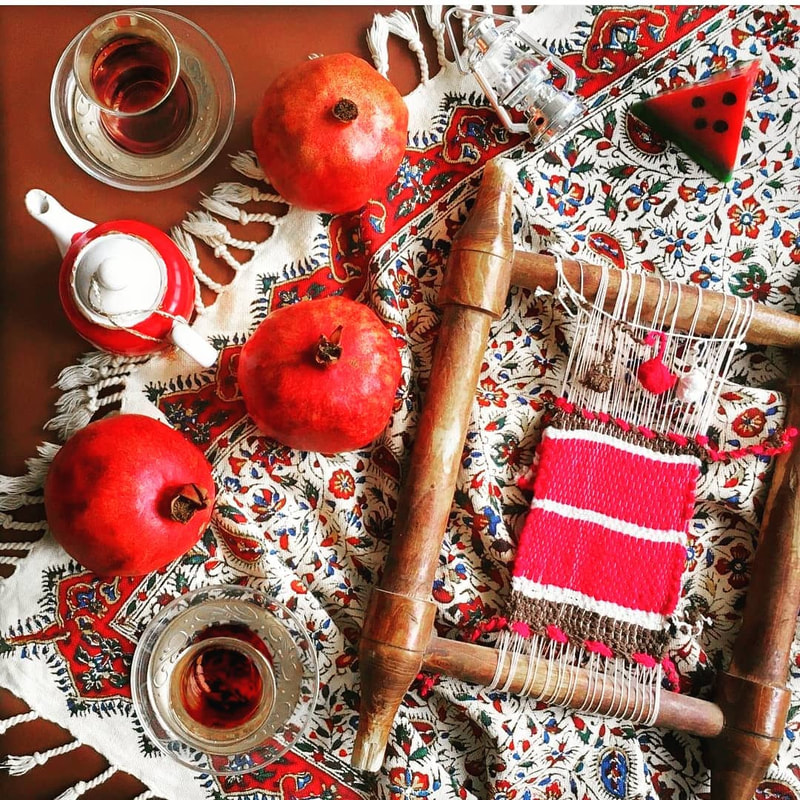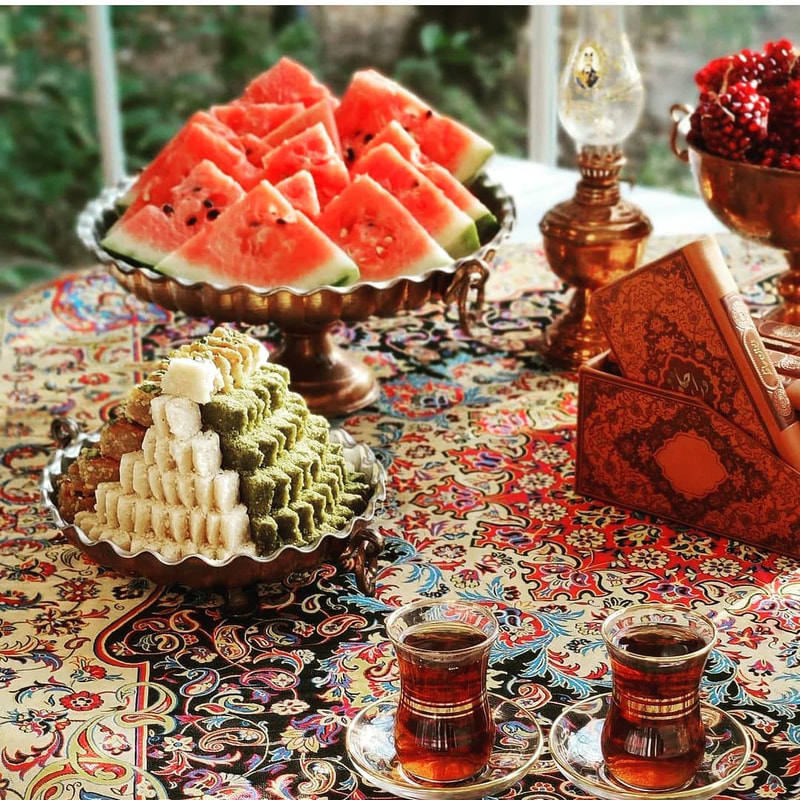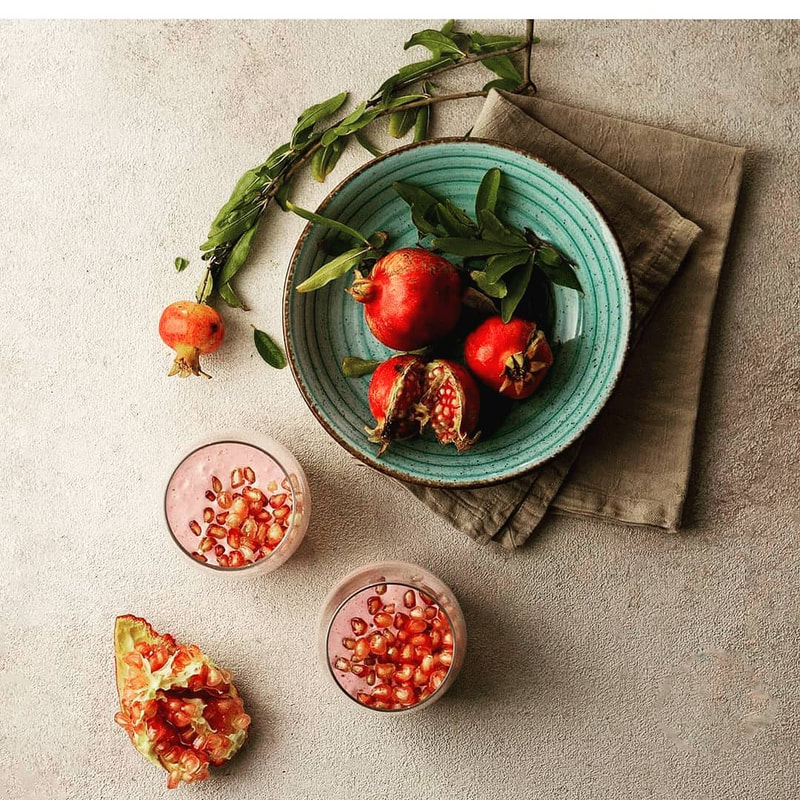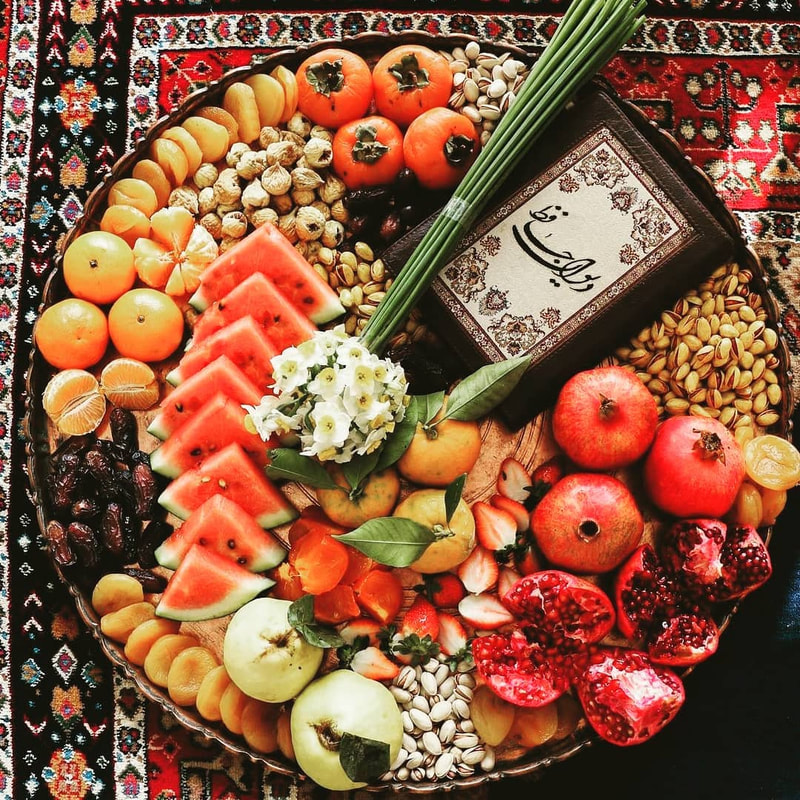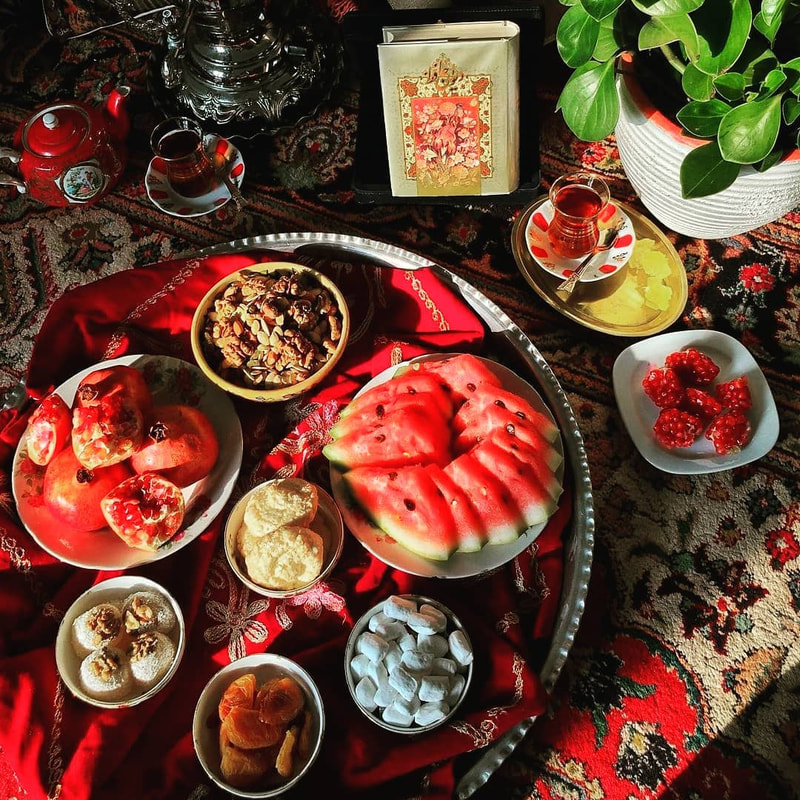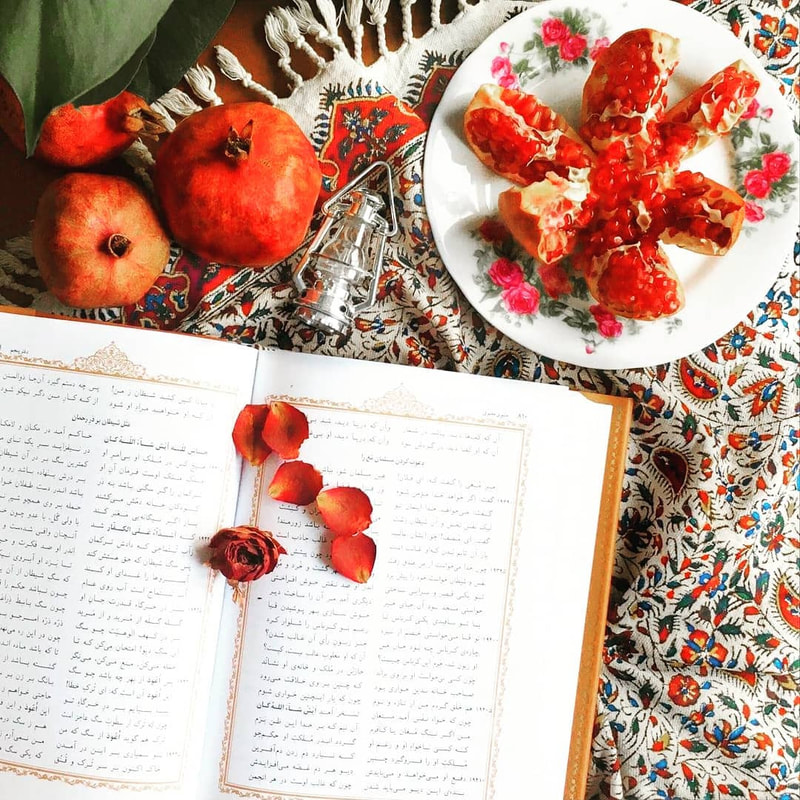Shab-e Yaldā or Shab-e Chelleh falls on the 20th or 21st of December, or the end of the ninth month (Azar) in the Iranian calendar. Iranic peoples stay up eating pomegranates, watermelons, nuts, drinking tea, and the like (usually remaining fruits from the summer), sitting under a heated table called a 'korsī.'
Persian speakers also practice bibliomancy (foretelling the future by interpreting a randomly chosen passage from a book) from Hafez's dīvān (book of poems). Each guest secretly makes a wish or asks a question they seek to find an answer to, and the reader(s) randomly select a poem from the dīvān for each person present to predict what their life has in store. The practice is called 'fāl-e hāfez.'
Yaldā marks the beginning of the first 40 nights of winter, hence its first name Shab-e Chelleh ('Fortieth Night'). Intervals of 40 days are significant in Iranic culture: Sufi tradition usually calls for 40-day seclusions, and relatives visit new ancestors 40 days after burial.
Chelleh began as a Zoroastrian practice. Zoroastrians believed that the Ahriman (evil spirit) was most active during the night, so they would stay awake with company during the longest night to stay safe, eating what remained of that year's harvest.
Chelleh took its second name 'Yaldā' in the first century when Christians settled in Persia to avoid religious persecution. The Christians celebrated Christmas, which they called 'Yaldā,' meaning birth in Syriac (cognate to the Arabic w-l-d).
Wishing all who celebrate this time of the year, in whatever form, a joyous Winter Solstice!
